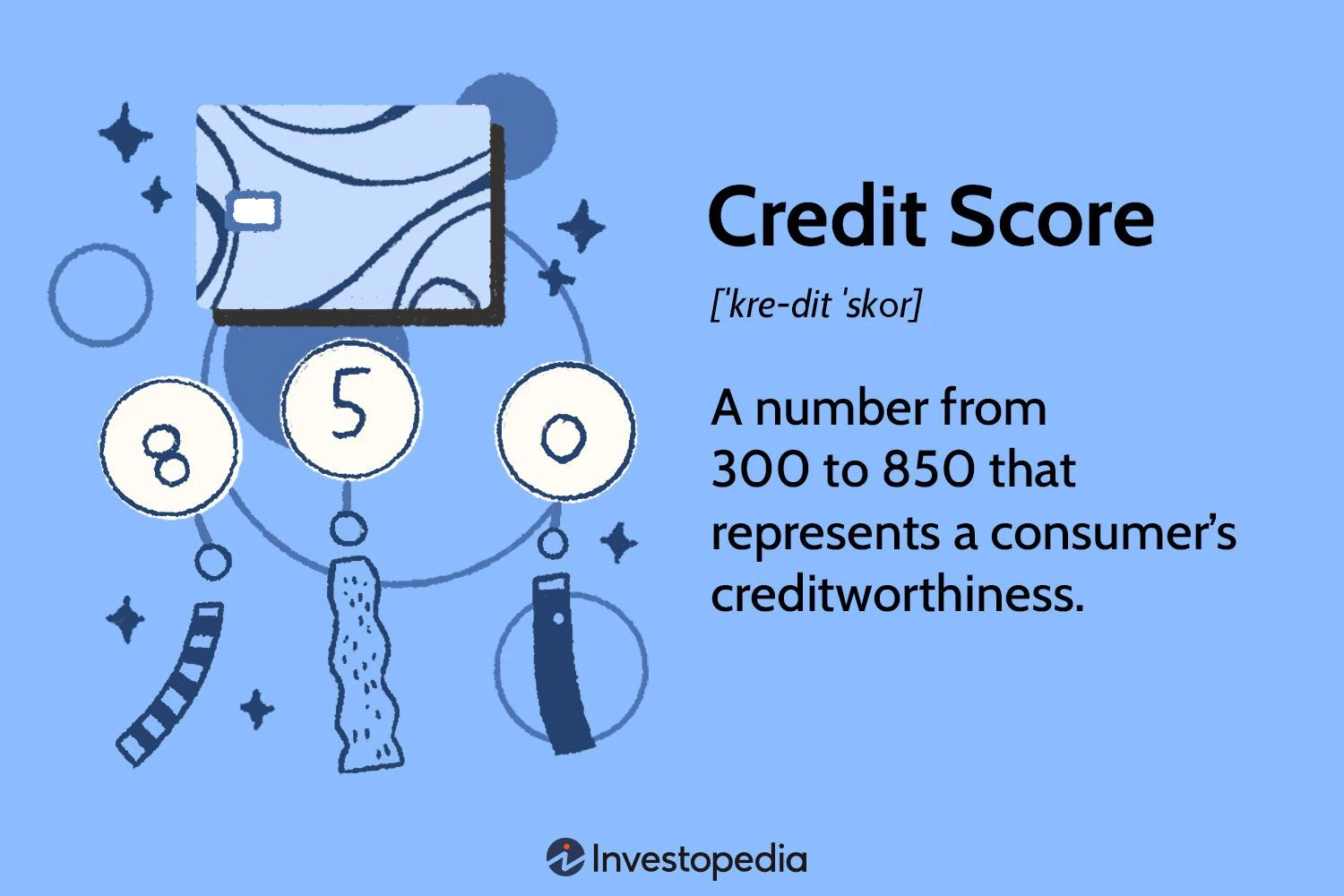A Comprehensive Guide to Credit Scores
Your credit score, a 3-digit number between 300 and 850, serves as a crucial indicator of your creditworthiness. A higher credit score enhances your chances of loan approval and secures better interest rates.
This numerical value is derived from various elements in your credit history, encompassing account details, debt levels, payment track record, and more. Lenders rely on credit scores to evaluate your capacity for timely repayments.
In the United States, the predominant credit bureaus—Equifax, Experian, and TransUnion—hold sway over consumer credit information.
Key Insights on Credit Scores
- A credit score is a measure of creditworthiness, with FICO scores falling within the 300 to 850 range.
- Calculation factors include payment history, credit types, credit history duration, debt utilization, and recent credit inquiries.
- Credit scores have a profound impact on loan approvals and the terms proposed by lenders.
- Equifax, Experian, and TransUnion are the primary U.S. credit bureaus that evaluate FICO scores with their unique approaches.
The FICO score, crafted by Fair Isaac Corp., stands as the most widely utilized credit scoring model.
Factors such as payment history, debt utilization, credit history length, credit mix, and recent account openings influence your FICO credit score.
Your credit score plays a pivotal role in lenders’ decisions regarding product approvals like mortgages, personal loans, and credit cards, as well as the associated interest rates.
Remember, entities like potential employers, service providers, and utility companies may also scrutinize your credit score for various purposes.
The Mechanisms Behind Credit Scores
Your credit score significantly shapes your financial future by influencing lending choices. Elevated scores heighten the likelihood of loan approval and lead to reduced long-term interest expenses.
Generally, a credit score of 700 or higher is viewed favorably by lenders, potentially resulting in more attractive interest rates. Scores exceeding 800 are deemed exceptional.
- Excellent: 800–850
- Very Good: 740–799
- Good: 670–739
- Fair: 580–669
- Poor: 300–579
Remember, your credit score can also impact deposit requirements for services like smartphones, cable subscriptions, utilities, and rental agreements.
Credit Score Calculation Process
The three primary U.S. credit reporting agencies—Equifax, Experian, and TransUnion—maintain and update consumer credit records. They consider five key factors when computing a credit score:
- Payment history (35%)
- Amounts owed (30%)
- Length of credit history (15%)
- Types of credit used (10%)
- New credit applications (10%)
VantageScore, an alternative to the FICO Score, represents a credit rating product jointly developed by Equifax, Experian, and TransUnion.
While FICO crafts tailored score variations for each bureau, VantageScore offers a unified score across all three bureaus.
Notably, the FICO score holds substantial significance, being utilized by approximately 90% of lenders.
Boosting Your Credit Score
Modifying your credit report details can impact your credit score. Here are strategies to uplift your credit score:
- Punctual bill payments over six months can result in a score enhancement.
- Inquire about a credit line increase on your cards, but refrain from excessive utilization.
- Avoid closing credit card accounts, as their age and limits play a role in your score.
- Consider leveraging credit repair services for assistance.
- Promptly scrutinize and rectify any errors in your credit report.
Defining a Strong Credit Score
Good credit scores vary based on the scoring model but generally span from fair to exceptional, influencing lending decisions significantly.
Who Calculates Credit Scores?
The primary U.S. credit bureaus—Equifax, Experian, and TransUnion—compute your FICO score slightly differently, albeit utilizing identical datasets provided.
Accelerating Credit Score Improvement
To expedite credit score enhancement, consider services incorporating non-traditional payment data like rent and utility payments, such as Experian Boost.
Final Considerations
Your credit score exerts a significant impact on your financial landscape. Understanding the credit score calculation process and taking proactive steps to enhance it can pave the way for improved financial prospects.
